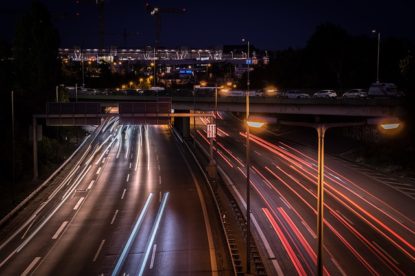Governor Pat Quinn signed important legislation this summer that changes Illinois Vehicle Code penalties. But not many are noticing because the law doesn’t go into effect until July 1, 2013.
The legislation was Senate Bill 2888, and it changes eligibility for supervision. The legislation is important because three convictions on moving violations within any 12-month period will cause a driver’s license suspension. But supervision is not a conviction, and therefore, supervision allows drivers to avoid a suspended license.
To illustrate, 730 ILCS 5/5-6-1(c) provides that the court can, rather than sentence an offender to a conviction, defer judgment and continue the case under supervision:
The court may, upon a plea of guilty or a stipulation by the defendant of the facts supporting the charge or a finding of guilt, defer further proceedings and the imposition of a sentence, and enter an order for supervision. See id.
But this is all changes with the new law. The law adds a provision to 730 ILCS 5/5-6-1 that eliminates supervision for speeding more than 25 mph over the limit:
(q) The provisions of paragraph (c) shall not apply to a defendant charged with violating subsection (b) of Section 11-601 of the Illinois Vehicle Code when the defendant was operating a vehicle, in an urban district, at a speed in excess of 25 miles per hour over the posted speed limit.
Most police officers will not pull over a motorist for speeding 10 or even 15 mph over the posted limit. Rather, tickets are issued at 15-25 mph most often. So the new statute will impact most speeders in traffic court. And it will make it more likely that they will lose their driving privileges.
From the State of Illinois press release:
Senate Bill 2888, also known as Julie’s Law, is sponsored by Sen. Maggie Crotty (D-Oak Forest) and Rep. Sidney Mathias (R-Arlington Heights). The law prohibits courts from granting supervision to any defendant charged with operating a vehicle on a highway at a speed greater than 30 mph over the posted speed limit, or in excess of 25 mph in an urban district.
Julie’s Law is named after Frankfort Square teen Julie Gorczysnski, who lost her life in 2011 after being struck by a speeding driver going 76 mph in a 40 mph zone. The driver who collided with Gorczysnski’s car had previously been placed on court supervision seven times for excessive speeding. The law is effective Jul. 1, 2013.
“A young woman in my district was killed in an accident caused by someone who should have never been behind the wheel at all,” Sen. Crotty said. “This law will help make sure that no family will have to endure the loss of a loved one in the way that has befallen the Gorczysnski family.”
“This legislation addresses motorists who are pulled over for driving more than 25 miles over the speed limit in urban areas and more than 30 miles an hour over on highways,” Rep. Mathias said. “It is my hope that the more stringent penalties will serve as a deterrent for motorists who put their lives and the lives of others at risk by driving too fast.”


